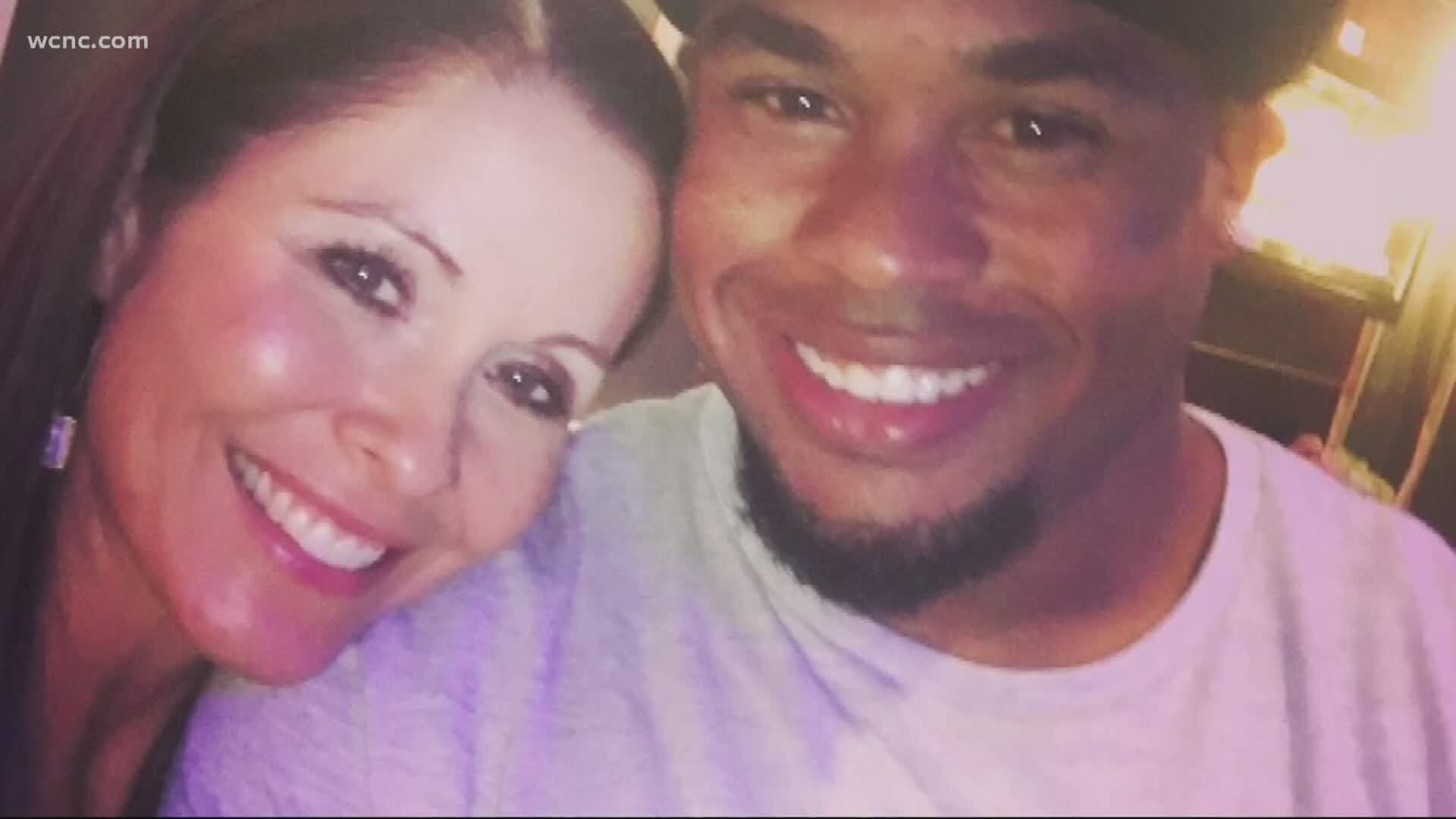*Editor's note: Since this story aired, CMS announced it's contributing $116,000, which will provide 100 children the opportunity to receive eight weeks of virtual learning assistance, technology, school supplies meals and more offerings through the foundation.
Former Carolina Panthers star Steve Smith said he's upset over what he calls a lack of planning from Charlotte-Mecklenburg Schools when it comes to a remote learning plan for the district's nearly 5,000 homeless and at-risk students.
In an exclusive interview with WCNC Charlotte's Sarah French, Smith said Charlotte needs to do better for kids facing an even bigger education gap in light of the COVID-19 pandemic.
“If this is their best then damn it, it ain’t good enough,” Smith said. “There was no clear cut plan for these children in the beginning."
Smith said while the district has supplied students with a computer and a hot spot, that isn’t enough for kids without a permanent home.
RELATED: Nearly 1 in 5 homes in Mecklenburg County don't have the internet. How to access free Wi-Fi
The Steve Smith Family Foundation partnered with the Urban League of Central Carolinas and the Hygge co-working building in uptown to provide a learning space for students that have nowhere else to go.
“We got 8,000 square feet of space," said Gerald Littlejohn, executive director of the Steve Smith Family Foundation. "It already has cubicles, chairs, furniture. It’s already social distance friendly and bathroom facilities, (and is) Wi-Fi-enabled.”
Smith said when the foundation reached out to CMS to help kids in need, he was shocked by the district's response.
“You know how many people they have offered to help that they have funding for right now? Thirty-five," said Smith, explaining the district told his foundation they only had enough money to fund 35 students.
In 2002, Congress authorized the McKinney-Vento Homeless Assistance Act to help people experiencing homelessness, according to the CMS website.
The federal law includes the Education of Homeless Children and Youth Program that entitles children who lack a fixed, regular and adequate nighttime residence to free, appropriate education and requires schools to remove barriers to their enrollment, attendance and success in school.
The McKinney-Vento Program meets the needs of homeless students attending Charlotte-Mecklenburg Schools by addressing academic challenges and family issues affecting their success in school.
“We have the highest homeless student population in the state," said Sonia Jenkins, the CMS McKinney-Vento specialist.
According to CMS, examples of living situations that may qualify students as homeless include, but are not limited to:
- Living with a friend, relative or another person/family because of a loss of housing
- Staying in a motel or hotel because of a loss of housing, fleeing domestic violence, or natural disaster
- Living in an emergency shelter, transitional housing or domestic violence shelter
- Living in a car, park or public place, abandoned building or bus station
- Living temporarily in substandard housing
- Living in a campground or an inadequate trailer home
- Living in a runaway or homeless youth shelter; runaway youth
- Youth living on their own, even if their families want them to come home
Before COVID-19, CMS planned to use money from the program for transportation, as well as before and after school programs.
“So that dollar amount was what we allotted for which covers our students yet now with remote learning it’s not enough," Jenkins said.
She said the cost per child jumped from an average of $60 to $145 per student.
The Steve Smith Family Foundation is still concerned about the other kids besides the 35 who could be funded by CMS.
“We talk about racial inequity. We talk about class and inequity. I mean these kids can fall behind in a way that is monumental," Littlejohn said.
Smith said he wonders what would have happened if nobody questioned things.
“The real honest question is if we wouldn’t have started asking questions, what would happen to these kids? I don’t think this is a COVID issue," Smith said. "I think this has been an issue for a very long time. I think just now the right people are asking the right questions, and I’m not OK with the answers that I’m getting. You say you have 5,000, but all you have is 35 on the problem? Now I know I went to public school too; 5,000 and all you got is 35? That is not good enough.”
The goal now for the Steve Smith Family Foundation is to get at least 100 homeless students sponsored so they can open their facility by August 24.
“These young men and women who are, majority of them, people of color who don’t have adequate means not just to sleep and eat, but also now not to have education," Smith said. "The reason why I’m passionate and just kind of disappointed with everything going on is because if we wouldn’t have reached out and started to see, then I truly believe it might’ve just gotten swept under the rug.”
Smith said that without the financial support he received from outside sources, his story would have turned out differently.
“I would not be a father," he said. "I would not be in Charlotte. To be honest, I think I would be in prison.”
It's a future he doesn’t want any other child to face.
“These kids now wake up every day going ‘Am I important?’ And the answer that I believe CMS is giving them is no they aren’t,” Smith said.
The Steve Smith Family Foundation is hoping private donations will help fill the gaps now. Again, they need at least 100 students funded to open on August 24. Click here if you would like to support the effort.
Since this story aired Monday night at 11 -- the foundation has received more than $20,000 in donations.

